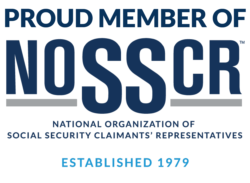Childhood illnesses that could be disabling
by Eric Slepian
Every parent hopes a child will be born and stay healthy. Tragically, this doesn’t always happen and a baby or child suffers a serious illness or injury. This often means that a family will devote money, time and effort to a child’s care. Not only can there be regular visits to the hospital and demanding treatment regimens, but families may also need to make daily lifestyle accommodations and changes.
As difficult as all this is for any family, it can be especially difficult for families with limited resources.
In these situations, parents may want to examine their options for pursuing financial support, including Supplemental Security Income (SSI). SSI is a monthly benefits program administered by Social Security that supports disabled adults and children who have limited income and resources.
SSI could be available to babies and children suffering from:
- Low birth weight (from birth to the age of 1)
- Failure to thrive (from birth to the age of 3)
- Extreme limitation of developmental abilities
- Certain birth defects
- Pediatric heart conditions
- Childhood cancers
- Cystic fibrosis
These and the other medical conditions included in the list of childhood impairments may qualify a child for disability benefits. Understand, though, that in addition to having a medically determinable impairment that is severe and limiting, applicants must meet resource limit requirements to be eligible for SSI.
Unfortunately, meeting these criteria and pursuing these benefits is more complicated than most people expect. Therefore, it can be valuable to consult an attorney familiar with navigating the Social Security system on behalf of disabled adults and children.
Managing a serious childhood disability is difficult enough for families across Arizona; no one should have to do it without support.



